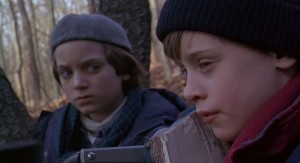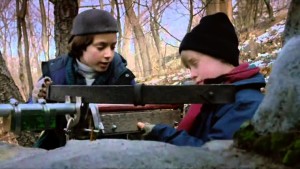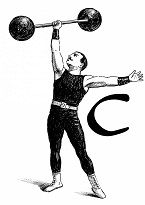Thriller/Horror movies often tote the line of practicality and undeniable mendacity. Often, the acting in a thriller can be the difference between its success and failure. If you’re delivered a skeptical plot, a great performance can reel you in. Likewise, a porous one can render the movie unwatchable.
The 1993 psychological thriller, “The Good Son” stars America’s (then) top young star, Macaulay Culkin and a relative (at the time) rookie in Elijah Wood. Culkin was still basking from his breakout performance in the all time Christmas classic “Home Alone” three years earlier, and by 1993 was a household name. Culkin would now switch personas from the loveable Kevin McCallister to the devious Henry Evans.
When Mark Evans (Wood) suffers through the death of his mother, his father (David Morse) must leave for Tokyo for a business deal that will make them financially set forever. What he does for a living or what the deal entails is never explained. The situation is quite unbelievable and this sets the stage for the litany of implausible events to follow.
The trip to Tokyo is just an excuse to have Mark sent to Maine to spend two weeks (which are conveniently over winter break from school) with his aunt, uncle, and younger cousins. Mark and his dad set out in the car from Arizona to Maine (apparently it’s easier to drive 3,000 miles across 10 states to drop Mark off than it would be to take him with him to Japan). The drive is supposed to symbolize Mark’s sadness at the loss of his mother but the only interesting thing about the trip is seeing the really young Elijah Wood playing with a Gameboy. Yes kids of 2012, that’s what we had for travel entertainment in the early ’90s.

Mark and his dad arrive at the coastal Maine palace (beckoning you to wonder just what Mark’s uncle does for a living too) and reconnects with his family. Mark is immediately taken in by his two young cousins, Henry and Connie (Macaulay and real life little sister Quinn Culkin).
Mark and Henry get along like brothers, and are enjoying their time together though Henry quickly shows signs of psychological issues and a proneness to violence (he’s also quite creepy as only Macaulay Culkin can unintentionally be). Henry plays with Mark and it makes you wonder why he would have a football or the other kinds of toys he has since he is always alone. What exactly was he doing before Mark arrived? The mental traits of Henry quickly escalate. When Mark slips from the top of a tree house, Henry grabs him but before pulling him to safety, eerily asks “If I let you go, do you think you could fly?” Later, he offers Mark a cigarette. When Mark refuses, saying they give you cancer, Henry replies “who cares, you’re gonna die anyway.” Henry is clearly obsessed with death. He advises Mark how important it is to see death and asks improper questions about the dead body of Mark’s mother.
 What starts as benign mischief between two 13-year-olds quickly turns horrific as Mark must find a way to convince his family that Henry is evil, and that he holds the key to a deeper family secret.
What starts as benign mischief between two 13-year-olds quickly turns horrific as Mark must find a way to convince his family that Henry is evil, and that he holds the key to a deeper family secret.
While the premise is interesting and creepy, Culkin’s acting is flat out egregious, creating an almost comical feel to it. The plot of the movie is that Henry wakes up one day and decides to become insane. There is no back-story at all. Henry obviously doesn’t like sharing his mother (showing signs of jealousy over Connie and even Mark getting affection from her) though is never shown to have any close relationship with her.
Mark’s aunt and uncle are about as unrealistic as any two parents could be. They let their son play in a tree fort that looks to be about 200-feet-high and held together with some scraps of rotten wood. They allow Henry, Mark and Connie to run around all day unsupervised, despite residing at the top of a coastal cliff several hundred feet above the crashing waves and jagged rocks below. They go to dinner one night and leave the three children home alone (no pun intended) and both have a general aloofness as to how to properly rear a child.
Somehow, Culkin’s acting managed to digress in the three years between “Home Alone” and “The Good Son,” and hasn’t done anything of note since. Meanwhile, Elijah Wood has launched himself to a great career.
It’s not bad, it’s not good. It’s an okay movie.
– by Matt Christopher


